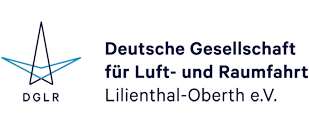DGLR-Publikationsdatenbank - Detailansicht
Titel:
Design Aspects of Intelligent Flight Control Systems
Autor(en):
B.E. Heinbokel, T. Krüger, P. Vörsmann
Zusammenfassung:
Within the scope of the recently initiated joint project "Bürgernahes Flugzeug", the Institute of Aerospace Systems (ILR) of the TU Braunschweig conducts research in the field of intelligent flight control systems (IFCS). While previous research efforts focused mainly on neural network based control of unmanned aerial vehicles (UAVs), this project extends this focus to conventional aircraft and strives to develop new solutions that enable a secure flight in both nominal and faulty conditions. This paper will first outline the overall purpose and the goals of the joint project "Bürgernahes Flugzeug" in order explicate the role of and the need for rigorous research in the field of IFCS. The institutes current state of UAV control based on artificial neural networks forms the foundation for ongoing research and will thus be briefly depicted. So far, the investigation of learning algorithms and their stability were emphasized as they embody a crucial aspect of machine learning. Subsequently, some relevant literature on hybrid, fault tolerant, and intelligent flight control will be briefly surveyed. Lastly, the key concepts are summarized and links to future work will be pointed out. The general structure of a hybrid flight controller which forms the inner loop of an IFCS is displayed in the figure below. It is the main idea to combine modern control design methodologies, such as dynamic inversion, with a neural network as an adaptive element. Since inversion based approaches often suffer from inversion errors due to structural system uncertainties or are sensitive to parameter errors, an adaptation to changing operating conditions is beneficial even for nominal flight. The highly valuable aspect of this hybrid combination is the capability to accommodate to drastically changing flight regimes due to structural failures or severe atmospheric turbulence. Since the early 1980s the research on advanced flight control systems has brought up a vast variety of methodologies. Intelligent flight control is associated to the field of hybrid, fault tolerant, and reconfigurable control. The authors try to categorize these approaches in order to clarify the possible routes taken in future work. In general, the following requirements are to be satisfied: Adaptation must be done under real-time conditions and quick enough to provide good transient performance and stability. Human interaction should be minimal meaning that some automatic decision making mechanism must be available for controller reconfiguration Independent of the actual situation, the selected method must provide a solution even if it is not optimal. The main part of this paper will consist of a review and a description of the relevant design aspects with respect to the applicability to a commercial aircraft IFCS. These aspects are among others: redundancy, control re-allocation, on-line model identification, actuator constraints, reliability, and stability of both the entire system and the utilized learning algorithms. This preliminary investigation shall serve as a baseline for the design of a hybrid system architecture that strives to bring flight safety and performance to a new level.
Veranstaltung:
Deutscher Luft- und Raumfahrtkongress 2010
Medientyp:
Conference Paper
Sprache:
englisch
Format:
21,0 x 29,7 cm, 7 Seiten
Veröffentlicht:
Deutscher Luft- und Raumfahrtkongress Tagungsband - Manuskripte, 2010, 2010, ; S.267-273; 2010; Deutsche Gesellschaft für Luft- und Raumfahrt - Lilienthal-Oberth e.V., Bonn
Preis:
NA
ISBN:
ISSN:
Kommentar:
Klassifikation:
Stichworte zum Inhalt:
Verfügbarkeit:
Bestellbar
Veröffentlicht:
2010
Dieses Dokument ist Teil einer übergeordneten Publikation 60201000 :
Deutscher Luft- und Raumfahrtkongress Tagungsband - Manuskripte, 2010
